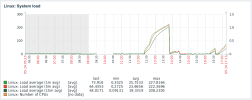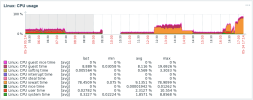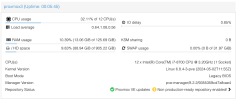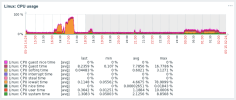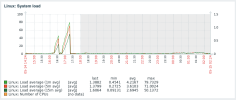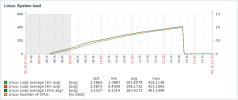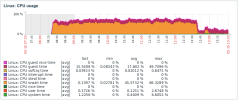hello all,
the title says them all.
during backup, i have excessive high server load which makes the server unresponsive.
server is new in Hetzner, backup goes to a storage box.
tried ztsd, lzo, even none, the same..
these are two screenshots from Zabbix, which i use to monitor the server.
the title says them all.
during backup, i have excessive high server load which makes the server unresponsive.
server is new in Hetzner, backup goes to a storage box.
tried ztsd, lzo, even none, the same..
these are two screenshots from Zabbix, which i use to monitor the server.


